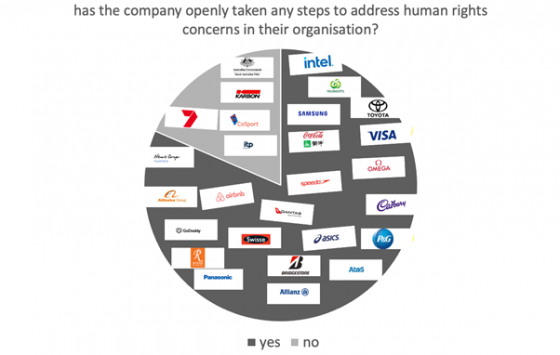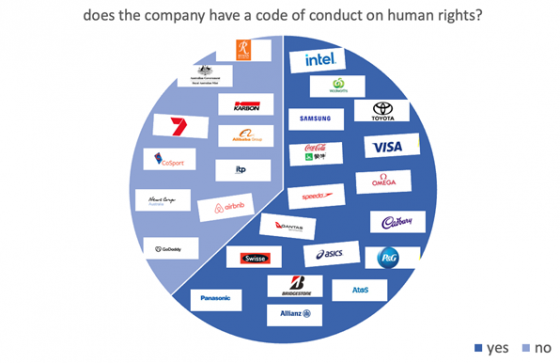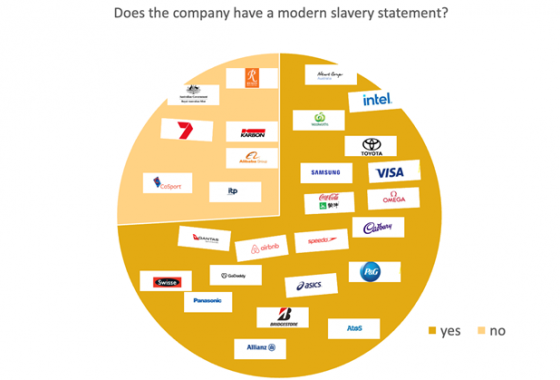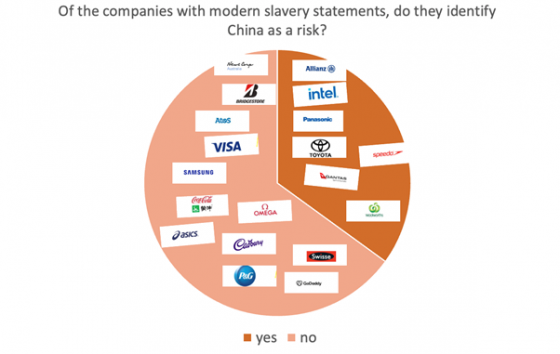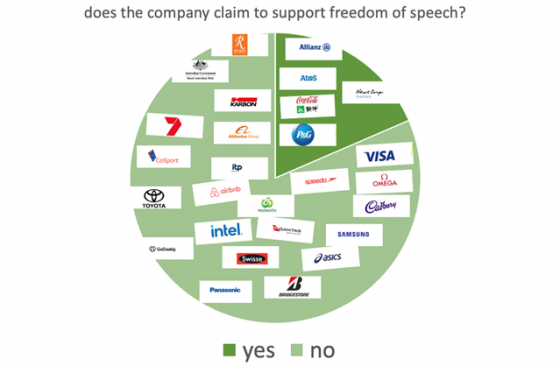Ariella Buckley
When the 2022 Winter Olympics begin in Beijing on 4 February, a number of human rights issues will loom over the international sporting competition. The most notorious of these concerns are the ongoing human rights violations including allegations of genocide and crimes against humanity against Uyghurs and other Turkic minorities in the Xinjiang region. Other human rights concerns include repression of religious freedom in Tibet, the disappearance of rights activists and lawyers, and strengthening of the oppression in Hong Kong.
The human rights of athletes will also be front and centre at these Olympics. In November 2021, the Chinese Government was accused of attempting to suppress allegations of sexual assault by tennis player Peng Shuai.
The Olympics are often associated with the values of ‘excellence, friendship and respect’ and ‘building a better world’, but there are fears that holding the Olympic Games in China may empower the ruling Chinese Communist Party by enhancing their image in the eyes of the Chinese and the global community. This has come to be known as ‘sportswashing’ – oppressive governments using sporting events to legitimise themselves and overshadow their human rights abuses.
The International Olympic Committee (IOC) and Australian Olympic Committee (AOC), along with the corporate sponsors of these organisations, have defended their involvement in hosting the Games in China in a number of ways.
Where the IOC and AOC stand on human rights
Speaking to the National Press Club of Australia, Vice President of the IOC John Coates, when questioned about IOC’s reluctance to take on the alleged human rights abuses in China, said:
“All we can do is award the Olympic Games to a country under the conditions set out in the host contract – and Brisbane has got it – and ensure they are followed, and there are many, many human rights requirements in that contract and in the Olympic Charter that have to be followed.”
Coates suggests there are human rights requirements in the Beijing host contract, however it does not include any explicit rights. There is only one mention of human rights in the Olympic Charter: ‘The practice of sport is a human right.’
The AOC Chief Executive Officer Matt Carroll said, “human rights are extremely important, but the considered view of diplomats is that keeping channels of communication open is far more impactful than shutting them down”.
Corporate sponsors of the Winter Olympics
There are a number of corporate sponsors of the Winter Olympics. These companies buy the rights to market their goods and services during the games. There are 27 principal corporate sponsors of the Australian Olympic Committee – 13 of these companies also sponsor the Olympics at the IOC level.
Of the 27 companies, 22 have openly taken steps to address select human rights issues within their organisation, for example, by having an anti-discrimination policy or diversity and inclusion goals.
17/27 companies have a code of conduct on human rights.
20/27 companies have a modern slavery statement.
Of the companies with modern slavery statements, seven identify China as a risk.
Five of the 27 companies have publicly claimed to support freedom of speech.
Despite these human rights initiatives within their organisations, these companies continue to sponsor the Olympics despite being hosted by China as it actively commits crimes against humanity.
Corporate sponsors defend themselves
Sponsors have defended their involvement in a number of ways, including building a narrative where they are supporting the ideals of the Olympics.
Airbnb said: ‘We believe China is an important part of our mission to connect people from around the world and from different background, now more than ever.’
Omega said: ‘We sincerely believe that the Olympic Games is a perfect opportunity to meet on common ground in a spirit of unity.’
Allianz said: ‘‘We stand behind the Olympic Movement and our longstanding support for its ideals will not waver.’
VISA and Coca-Cola both claim their approach to human rights extends to their sponsorship of major sporting events.
VISA said: ‘We continue to work with the major sporting bodies with which we are affiliated as a sponsor to encourage these organizations to implement policy and due diligence systems to respect human rights in sport and sporting events… While our major sports sponsorships are not part of our internal operations nor our supply chain, we believe our efforts in this area are significant to the role we play in the prevention of human trafficking.’
It is difficult to imagine how VISA’s major sports sponsorships are not part of their internal operations, as this is one of the ways they market their goods and services. Claiming these sponsorships fall outside the remit of the internal operations of their company is an attempt to distance themselves from the abuses occurring in China.
Coca-Cola sees its influence as an Olympic sponsor as limited. “The Coca-Cola Company is one of 14 companies in the Olympic Partners program. Those 14 companies together provide less than a fifth of the IOC’s funding,” it said. This is despite the company recently partnering with a Chinese dairy company in a $3 billion sponsorship deal of the Olympic Games extending to 2032.
Further, Coco-Cola claim they cannot realistically be expected to address the human rights risks with their involvement in the Beijing Olympics because China decides whether they can do business there, and this is a multi-billion dollar industry.
It also claims it commits to multi-year partnership agreements to sponsor events long before the host city is selected. However, this neglects the fact they could have their sponsorship conditional on the Olympics being hosted by a country upholding a number of human rights standards.
The UN Guiding Principles on Business and Human Rights confirms the corporate responsibility to respect human rights though too often companies demonstrate a vast divide between policy and practice. At best, it appears hypocritical of corporate sponsors to take steps to address human rights in their organisations, have codes of conduct on human rights and modern slavery statements, identify China as a risk and claim to support freedom of speech, but nevertheless sponsor the Olympic Games in Beijing. At worst, these organisations risk indirectly supporting the human rights abuses currently occurring in China.
Ariella Buckley is in her final year of a Juris Doctor and took part in an internship with the Australian Human Rights Institute in summer January 2022.
